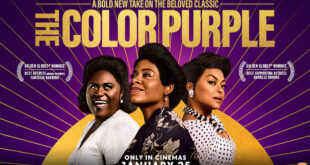When viola player Anne Draffin tells people she plays in the Auckland Philharmonia Orchestra (APO), occasionally she still gets asked ‘what's your real job?', but it is getting better, she says and laughs.
"In a country very keen on sport, it is perhaps becoming more acceptable to be a professional musician."
Music has been a major part of her life since secondary school days in the late 70s. An initial interest in music was nurtured by very supportive parents. As well as supporting children and grandchildren by attending hundreds of concerts, Anne's mother, Jean Draffin, was President of the APO Friends organisation for many years. The good fortune of a fantastic music teacher at Diocesan School meant performances of St Matthew Passion, wonderful carol services as well as other shows and chamber music competitions. Participation in the New Zealand Secondary Schools Symphony Orchestra (NZSSSO) and the Auckland and National Youth Orchestras followed.
The National Youth Orchestra was held in different centres, and played wonderful music – full orchestral programmes with good conductors. Back then, the national chamber music competition was not nearly so big, but now she explains, it involves around 500 groups from around New Zealand.
Then there were the wonderful Cambridge Music School summer camps at St Peter's where musicians immersed themselves in chamber and orchestral music from dawn to way past dusk.
"I always remember being so totally involved in the music. We were consumed by it. For those two weeks of the summer camps, it was your entire world and you knew of nothing else.
"Being involved in so many different music groups meant that you met and got to know other musicians of your age group around the country. It's been like belonging to an extended family."
Back in the late 70s, being a professional musician did not feature on top of the Preferred Careers list, but within weeks of studying music at university level, Anne knew this was what she was going to do. While at university she was lucky to get casual work in the Symphonia of Auckland, then on completion of her studies she auditioned and accepted a job as a viola player before going to London for further study.
Soon after booking her plane fares, the Symphonia folded, but a group of players immediately got together to form the Auckland Philharmonia Orchestra. After several months of planning, Anne left for London before the first concert of the new orchestra but returned two years later to become a member of the viola section.
"When we first started the APO, we only got paid every time we performed a concert so we all had to have other means of income for quite a few years.
"I gave private music lessons and also worked as postie for a year or so. We worked really, really hard in those early years because like many of our friends, we wanted to buy homes and have families and so we had to get other work on top of playing in the orchestra to afford them."
Since then, she explains, greater support and opportunities for classical musicians wanting to excel have become available, including better teachers and more competitions. The value of a competition is not competing but having that date as a goal for which to prepare some fabulous music with friends to the best of your ability.
These days the APO also has a big education programme and Anne, along with many APO members, does a lot of mentoring. How it works is schools apply to join the programme and can select different options to use a specific number of hours. For example, one of the options is to have a mentor go in to schools and support them with orchestral programmes and the preparation of chamber music for competition. Some students then submit these performances on video for their NCEA or CIE group assessments. The number of schools in the programme has continued to grow and there are currently 50 members.
The orchestras and groups that supported the growth and development of our best musicians are now in turn benefitting from their success and experience. In addition to private lessons and mentoring young musicians through schools, for example, Anne is now on the Executive Committee of the Auckland Youth Orchestra for which she once played.
"Even though nowadays the orchestra is very successful and a big part of Auckland's cultural life, a lot of us still teach. One of the other things I enjoy most about playing in the APO is the variety of what we do. Many of the orchestras around the world play either the symphonic repertoire or opera and ballet, whereas we do something from all of those genres plus some contemporary music collaborations with, for example, John Psathas, Little Bushman, Serj Tankian and Six60, the Topp Twins and Meat Loaf. We've also performed big outdoor concerts like Symphony under the Stars for hundreds of thousands of people and we accompany silent movies. It is a very diverse body of work."








Join the Discussion
Type out your comment here:
You must be logged in to post a comment.